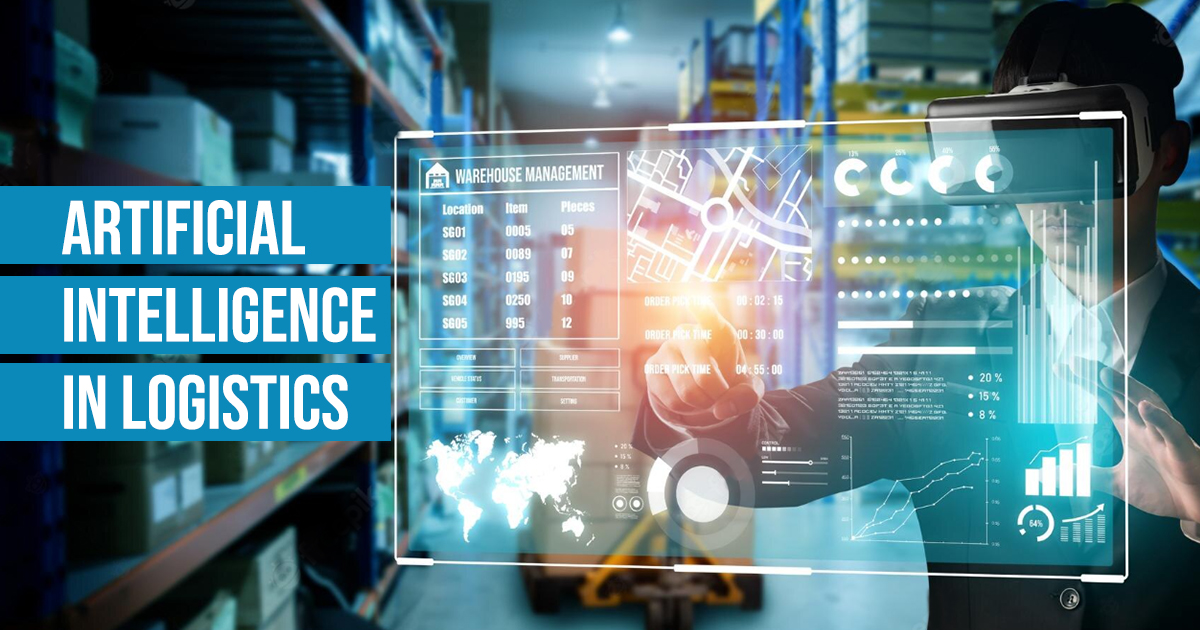
Artificial intelligence (AI) is getting increasingly important in logistics as companies strive to improve efficiency and optimize their operations. While AI is still in its early stages, it has the potential to transform the way logistics companies operate, from planning and route optimization to warehouse management and beyond. In this blog post, we’ll explore the impact of AI in logistics, both today and in the future.
What Is Artificial Intelligence?
AI is a field of computer science that focuses on the development of intelligent machines. This technology is capable of problem solving, decision making, and learning.
This technology has already been integrated into many of today’s products. Some of the most popular examples are driverless cars to virtual assistants like Siri and Alexa. In addition, AI is now in medical diagnostic and treatment planning, enterprise resource planning, and logistics.
Artificial intelligence (AI) is quickly becoming a bedrock technology within the complex supply chain landscape. Its logistics adoption enables powerful advances in delivery, cost savings, and performance optimization.
Use AI For Demand Forecasting
For example, AI can predict future demand. The system can examine prior trends and client profiles to develop more accurate inventory forecasts. As a result, companies can reduce the costs of replenishing goods and materials by proactively predicting demand.
Use AI For Route Optimization
Furthermore, AI can also optimize product routing to maximize transport efficiency. It can find lower-cost or faster shipping solutions by utilizing real-time inventory demands.
Use AI For A More Reliable Customer Service
Artificial Intelligence has the potential to revolutionize logistics and customer service. With AI-powered automation also comes increased safety. Modern machine learning algorithms make predicting delivery times and optimizing routes easier. On the other hand, intelligent alert systems ensure that customers are updated on their orders. Using AI to drive customer service excellence in logistics can help companies stay competitive in a changing digital market.
Use AI To Reduce Your Spending Over Time
AI-driven technologies like automation and robotics can streamline the shipping process. It can replace expensive human labor in certain areas, cutting business costs. Furthermore, the AI technologies discussed can help resource allocation attain maximum efficiency and reduce costs.
Furthermore, AI can anticipate software updates and detect issues. This will be most helpful in tracking trip delays, checking regulatory compliance, ensuring safe payment methods, and predicting customer behavior to match changing industry demands.
Don’t Miss Checking Out AI Logistics Solutions!
In conclusion, AI can transform the logistics industry. While several challenges must be overcome before AI can be completely integrated into logistics, the potential benefits make it a technology worth further exploration.
Artificial intelligence (AI) can change logistics by providing immense potential and disruptive prospects. Businesses can have end-to-end visibility into their supply chains using predictive analytics, natural language processing, computer vision, and other AI technology. By automating tasks like data entry with AI, businesses can free up their employees to focus on more important aspects of their job. This proactive approach can help reduce costs and increase customer satisfaction.
SEE ALSO:
